Results
-
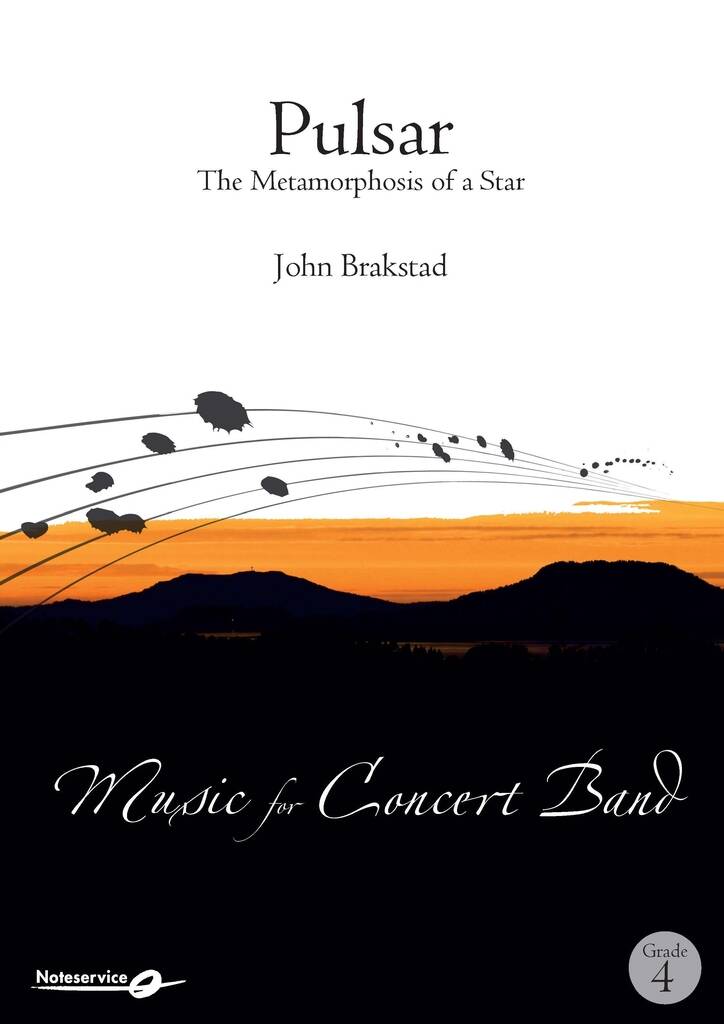 £228.70
£228.70Pulsar - The Metamorphosis of a Star - John Brakstad
4th July in 1054 AD one of the most spectacular events was witnessed in the Cosmos. A massive star blew out; a supernova explosion.From the Earth it appeared as a new, bright star; the most brilliant in the sky. It was visible for three weeks, also in daylight, before it then faded away.But what was left of it is spectacular. Today we call it the "Crab Nebula".And in the very centre of the Nebula lies the remnant of the star; the core crushed by the force of gravity.This is a rotating neutron star, a pulsar, just 20 kilometres across, but so dense that it weighs more than our sun.As the neutron star spins, ejected particles stream out from its poles at almost the speed of light.These jets create powerful beams that sweep around as the star rotates.When the beams sweep across the Earth, they can be heard as regular pulses. We call them pulsars.In this piece there are three percussion parts. In addition there is an "optional part" to replace the marimba and vibraphone written in the three original percussion parts if desired. This fourth part is shown in the full score.
Estimated dispatch 7-14 working days
-
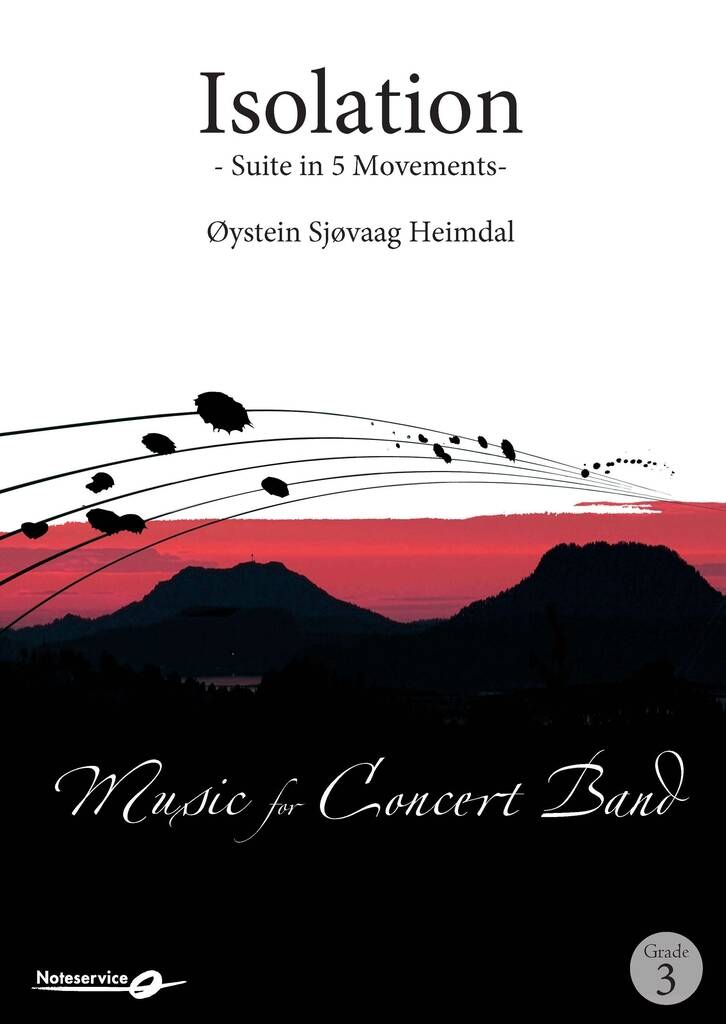 £144.20
£144.20Isolation - Suite in 5 Movements - Øystein Sjøvaag Heimdal
This suite in 5 movements was written during the Corona pandemic and is inspired by experiences and feelings during this period. Feelings like insecurity, frustration, happiness, sorrow, hope, and optimism are the underlying themes, and this can be heard through the music. This is not, however, program music, so the audience may have their own perception of what the music is about.This piece provides the opportunity to focus on the different elements of music, such as dynamics, articulation, expression, tone control and timbre.The five movements can be performed separately.
Estimated dispatch 7-14 working days
-
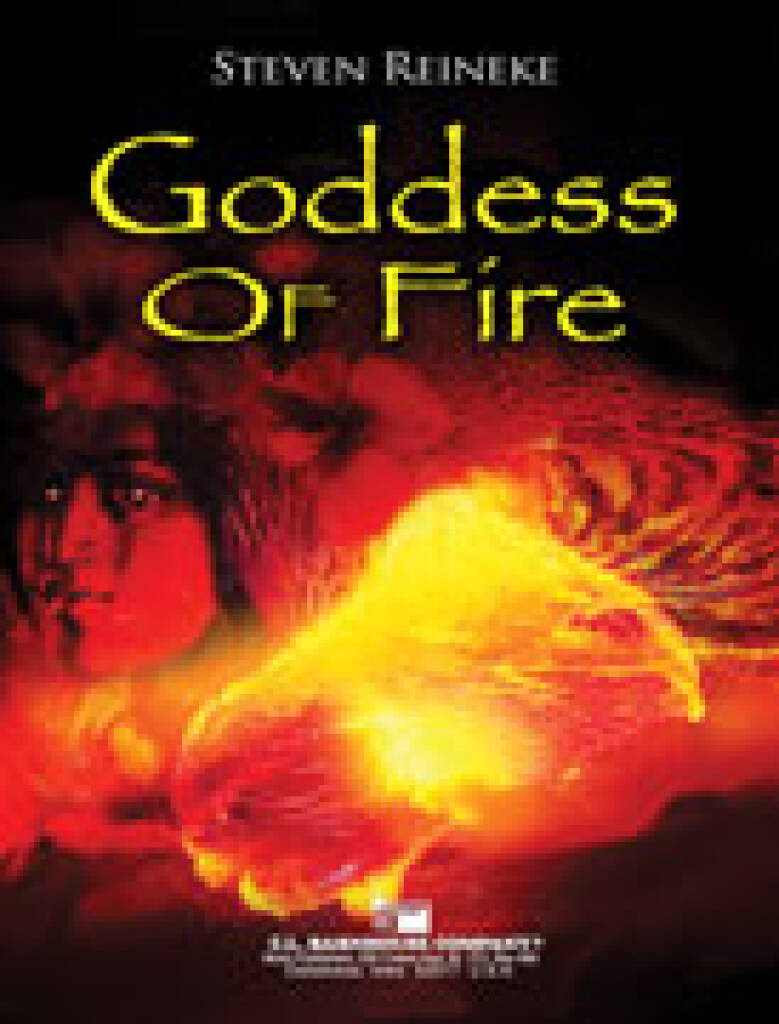 £129.50
£129.50Goddess of Fire - Steven Reineke
A magnificent programmatic work for symphonic band that is an offering to Pele, the Goddess of Hawaii's volcanoes. The work opens with primordial, mysterious sounds representing the foreboding volcanoes of Hawaii. We are then introduced to Pele as a tall, beautiful young woman. This is one of the forms she can take and it represents her powers of creation and beauty. This gives way to the active and destructive Pele, often taking the form of an old woman, wrinkled and bent with age. The following lyrical section of the piece is the full statement of Pele's theme of creation and beauty. As this theme settles, we begin to hear the ground pop and crack letting us know that new lava is beginning to bubble and flow. Suddenly and violently, one of her volcanoes erupts, creating massive chaos and destruction. After the eruption subsides, Pele's theme of creation and beauty returns again. A wonderful addition to any concert or festival performance by mature bands. Exceptional in every respect!
Estimated dispatch 7-14 working days
-
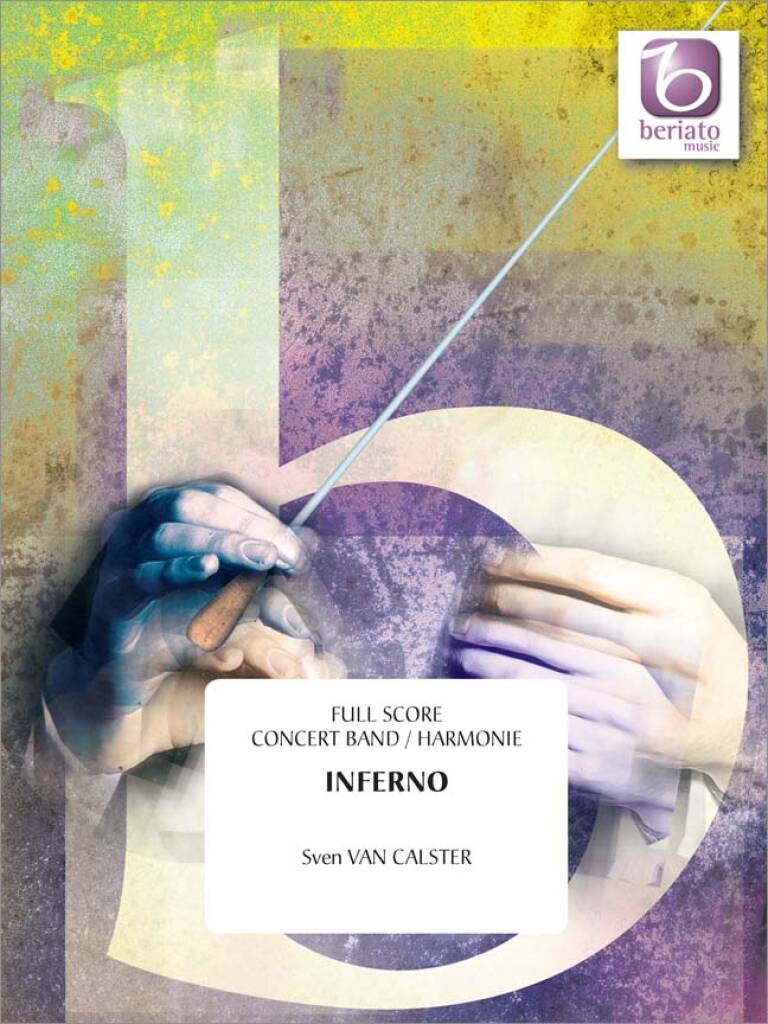 £118.99
£118.99Inferno - Sven Van Calster
On 25th May 2011 a huge fire broke out in the Kalmthoutse Heath nature reserve north of Antwerp. Within a very short time more than 600 hectares of heath land went up in flames. The effect on the surrounding environment was huge. The fire left deepscars affecting the residents, those responsible for heath land, and also the members of the fire brigade who for several days risked their lives to fight the fire.The composition Inferno begins majestically and on a huge scale, exactly as theKalmthoutse Heath is. Soon a theme is introduced into the work in which the magnificent beauty of nature can be heard. We then hear the fires on the heath set to music. Even thefire helicopter can be heard, together with the first discussions thattook place after the alarm was raised with the Kalmthoutse fire brigade.One fact remains at the centre of this work, however: the natural beauty and splendour of the heath landscape. This is expressed at the start of the work in a theme that recursthroughout the piece. Towards the end it is finally replaced by a peaceful conclusion, representing the hope for a speedy regeneration of this wonderful nature reserve. Download the audio file from the 'Attachments'.
Estimated dispatch 7-14 working days
-
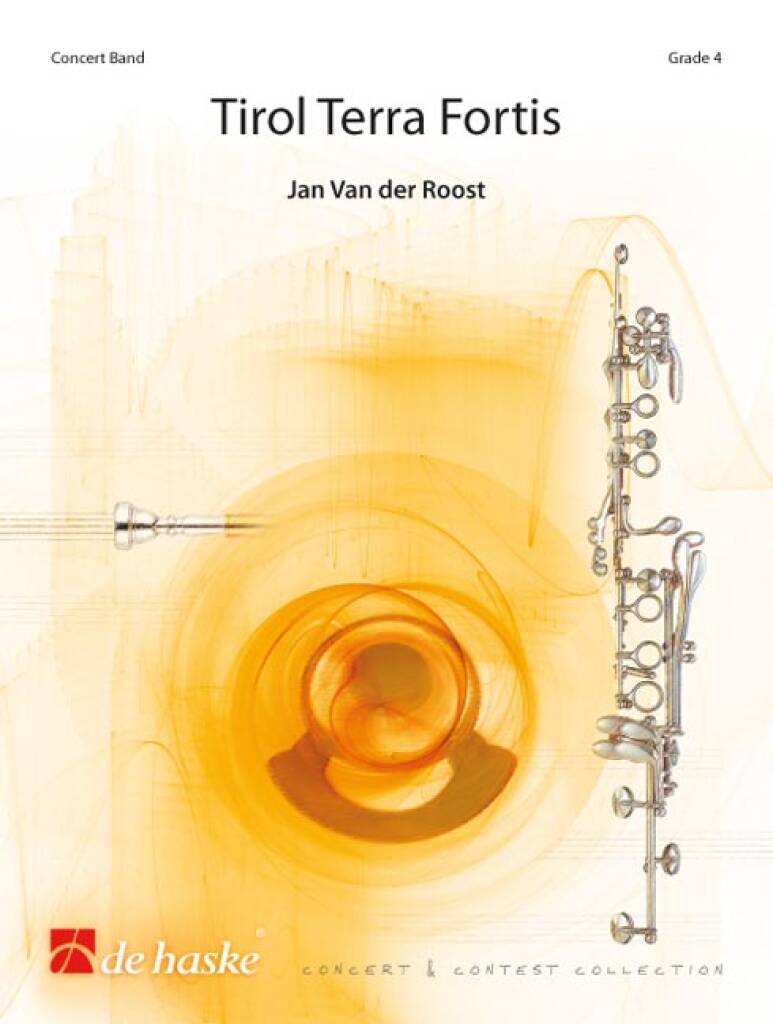 £159.99
£159.99Tirol Terra Fortis - Jan Van der Roost
The Stadtmusikkapelle Wilten-Innsbruck (Austria) invited Belgian composer Jan Van der Roost to write a work to mark the bicentenary of the Tyrolean fight for freedom, which was settled in 1809. Various musical elements reflect this historical event. First, a hymn-like section rings out, based on melodic fragments from the 'Tiroler Landeshymne' (by Leopold Knebelsberger), which intertwine in a counterpoint-like arrangement. The second passage is more bellicose in character, and mirrors the fight of the Tyroleans - under the inspiring leadership of freedom fighter Andreas Hofer (1767-1810) - against Bavarian, French and Italian troops. Next, a broad, chorale-style melodyappears again: here, the imposing beauty of nature in Tyrol, and the amiable, lively temperament of the people who live in this mountainous region, are glorified.This is neither a programmatic work around an historical reconstruction, nor a politically inspired work: it is a combination of factual and cultural components, with an artistic and sonorous character. The use of the flugelhorn in particular gives Tirol Terra Fortis its 'couleur locale': for this beautiful instrument can invariably be found in the Austrian wind band. The commissioning music society had therefore specifically asked the composer to incorporate the instrument in this work. It certainly enhances the already extensive colour palette of the modern concert band!
Estimated dispatch 7-14 working days
-
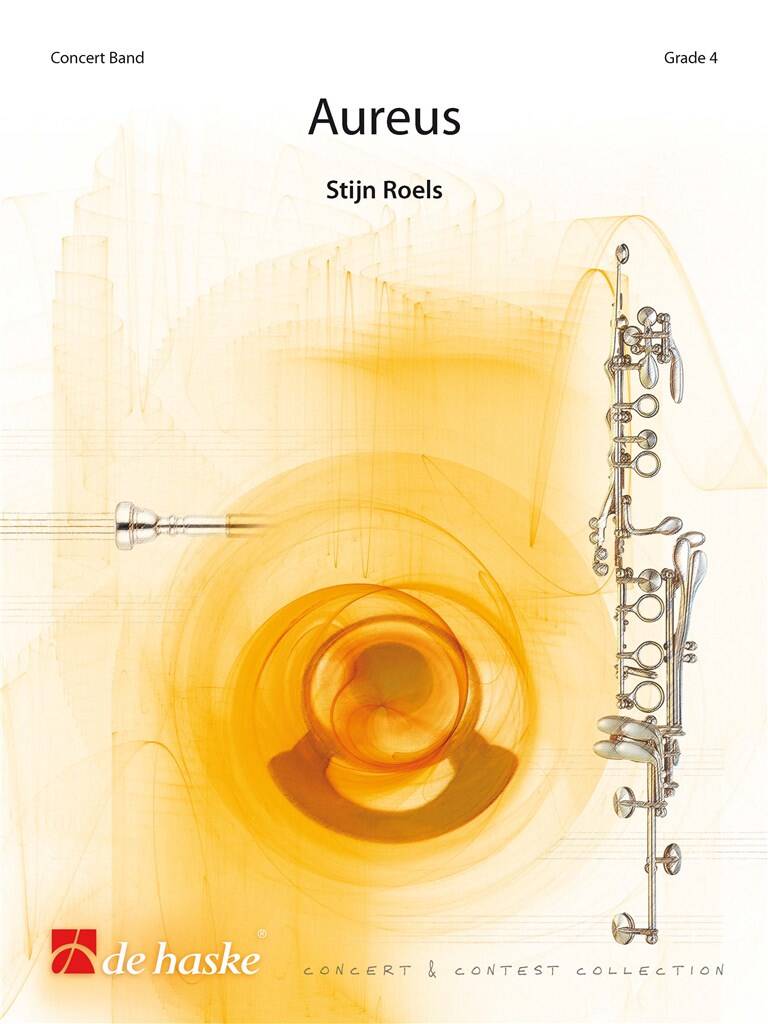 £149.99
£149.99Aureus - Stijn Roels
This composition was written on the occasion of the golden jubilee of the De Pinte wind band. This is also the derivation of Latin title Aureus (golden - from the word aurum, or gold). This work is comprised of three main sections. Thefirst and last sections are predominantly a musical setting of the concepts of celebration and joy in keeping with the theme of jubilee. The music is therefore above all dynamic, energetic and extrovert. The middle section has a more introspective,melodic character, contemplating the subtle beauty of life. Aureus is a newly composed chorale that establishes the most important attributes in life and also within a club or association: love, friendship, health and happiness.
Estimated dispatch 7-14 working days
-
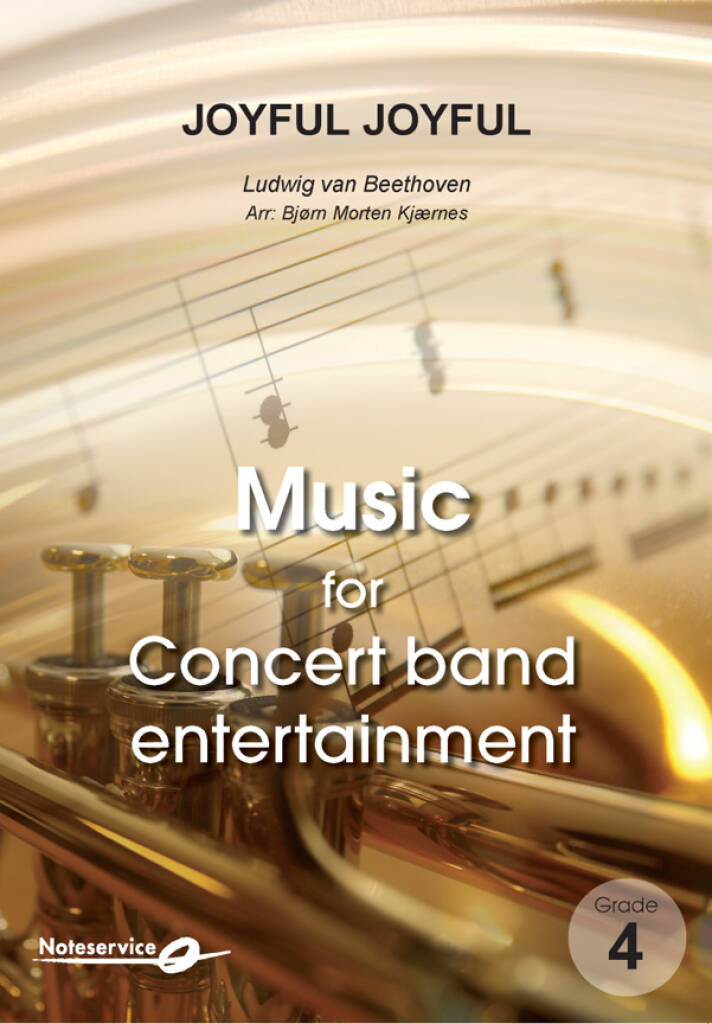 £149.40
£149.40Joyful Joyful - Ludwig van Beethoven
Beethoven's everlasting melody keeps popping up in different arrangements. This one is inspired by the version made to the movie "Sister Act". Gospel at its best!You may use this piece both in church concerts and entertainmentsshows.This is a fine number to practice sixteenths syncopations. Often, most players have similar rhythm and phrasing, but with different pitches. Extended harmonies and ensemble balance are also elements to work on. Two groups havespecial roles: * If you perform the arrangement instrumental, 1st Altosax and Tenorsax are both important. The solos may be played as written or improvised. There is also an optional womens choir arrangement (SSAA) includedin the set.* The bass line is also challenging and very important. Make it groove!
Estimated dispatch 7-14 working days
-
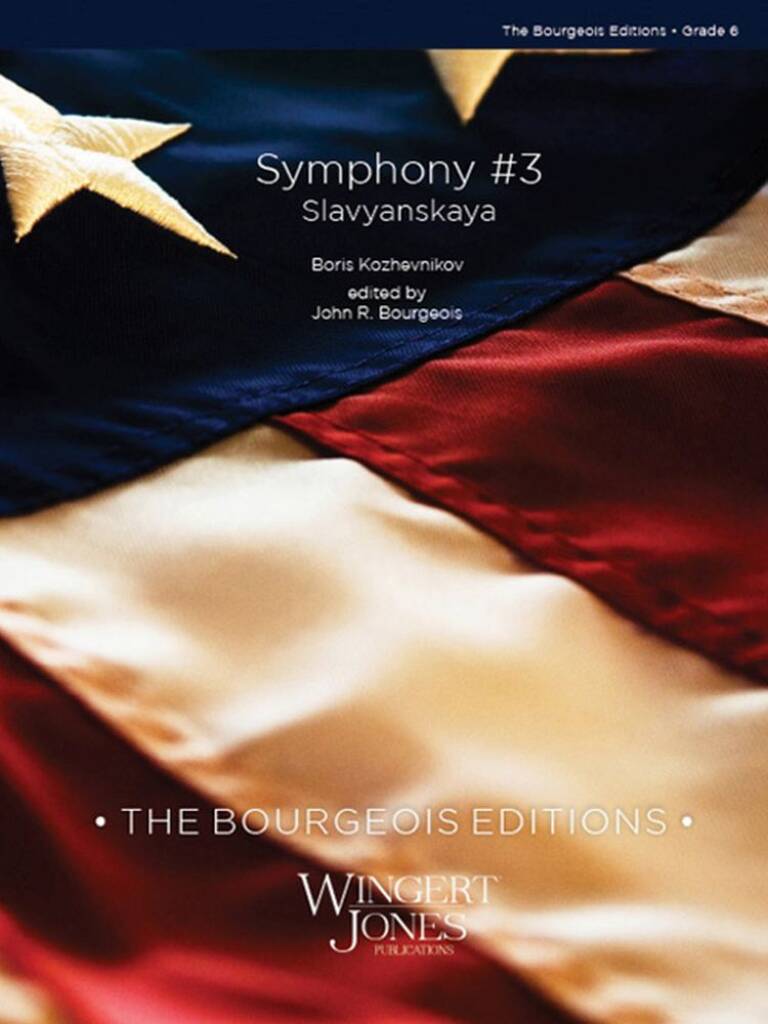 £137.00
£137.00Symphony #3 Slavyanskaya - Boris Kozhevnikov
This is a remarkable find! With the opening of the Iron Curtain, an incredible wealth of previously unknown symphonic band material has been discovered, and this amazing work stands out as a masterpiece. 14 minutes long, this four-movement symphony for winds is reminiscent of Prokofiev and Ewald, and is as powerful as the orchestral symphonies of Kalinnikov! Top-level symphonic bands will want to consider this important work for their repertoire!
Estimated dispatch 7-14 working days
-
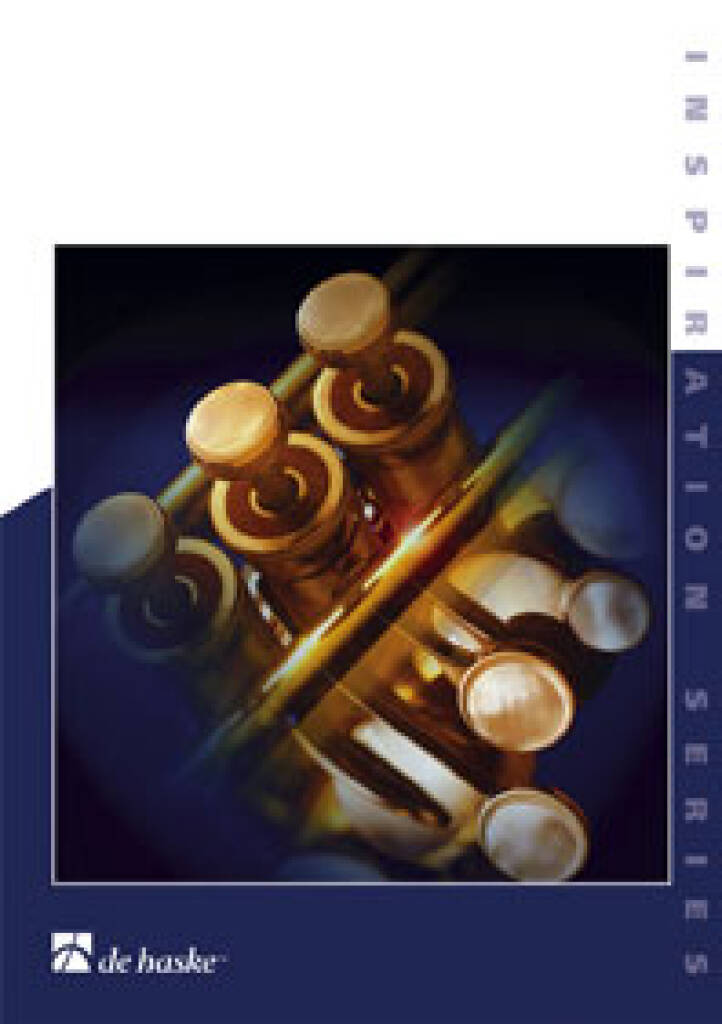 £149.99
£149.99Concordia - Jan Van der Roost
This unusual concert work, commissioned by the concert band ?Harmonie Concorde? from Sanem in Luxembourg, is built on two basic ideas: the evolution of the economic and social context of this Luxembourg city with its strong mining industry and the European concept, which is clearly present in this very small but prosperous country with its many European institutes. This is musically expressed in a few quotes from the European hymn Ode to Joy, the closing of Beethoven?s Ninth Symphony and from the Te Deum by Charpentier ? widely known as the signature tune for Eurovision broadcasts. A work of true unity.
Estimated dispatch 7-14 working days
-
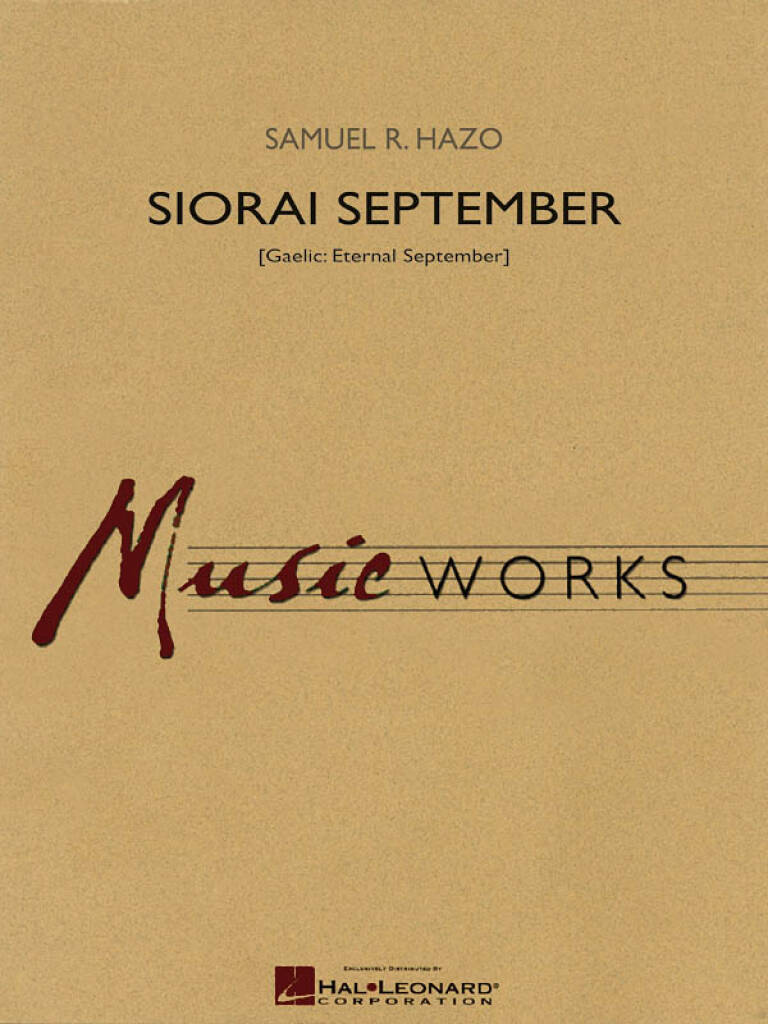 £79.99
£79.99Siorai September - Samuel R. Hazo
Translated from Gaelic as Eternal September, this marvelous setting for band is designed to take each listener back to their own vivid fall memories on a college campus. Commissioned by the University of Notre Dame and premieredat their Carnegie Hall performance in 2010, this work is also dedicated to the composer's father, Dr. Samuel J. Hazo, a 1949 graduate of Notre Dame. Additionally, Dr. Hazo's poem Home Are the Sailors is incorporated in the middleof the piece. Rich in musical references and varied textures, this is a dramatic and rewarding work for mature ensembles. Dur: c. 5:30
Estimated dispatch 7-14 working days
